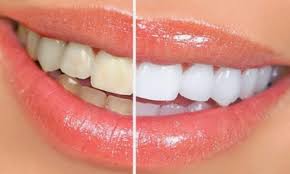For parents, allergy in children is feared more than infectious diseases. Various attempts have been made to prevent allergies, from administering probiotics, immunotherapy, to avoiding allergens. However, what if the cause of allergies is dust mites often found in pillows, mattresses, cabinets, books, and clothes? It is hard to avoid them. Today, immunotherapy is still the first choice for allergies to dust mites. However, the cost is very high. Thus, a different, easier, cheaper, effective approach is needed to prevent the frequency of allergies in children.
From observation to children who often seek treatment at allergy clinic generally have calculus and poor oral hygiene. So a preliminary study was conducted in mice. Several pathogenic germs in the oral cavity have been investigated. In the end, it was concluded that one of the evil oral pathogenic germs, Porphyromonas gingivalis, can trigger allergic reactions and disrupt the systemic immune system. Immunoglobulin-E antibodies, an immune mediator, are stimulated by the pathogenic cell component of the germ cell. Thus causing excessive release of histamine and triggering allergies quickly. (Nelwan et al., 2019: 113: 89-98).
Therefore, a research team from UNAIR consisting of pediatric dentists, biomaterial dentists, general practitioners, pediatricians, allergy specialists, epidemiology researchers, and biostatistics experts joined forces to hold the first randomized controlled clinical trial project in the world. To find out the correlation between calculus cleaning, antibody repair in children, and house dust mite allergies. After obtaining a certificate (20 / Panke.KKE / I / 2017), the research team registered the clinical trial protocol to the clinical trial registration center (ISRCTN31416107). By invitation, 22 children with calculus disease and allergies to house dust mites were involved. Ten of them met the criteria of the research team. With a random selection, five children performed calculus cleaning, and their oral hygiene was monitored for six months (1 July 2017-31 December 2017) whereas five children get standard allergy therapy. Six months after the clinical trial, the group of children undergoing calculus cleaning experienced less allergic reactions, and when they happen, the allergy was less severe compared to those who did not get calculus removal. There was also a decrease in immunoglobulin-E level, a significant allergy-causing antibody in a group of children who underwent calculus removal for at least six months.
There is a close correlation between oral hygiene with systemic immunity. Parents need to have awareness about the cleanliness of their child’s oral cavity by knowing the right way to brush their teeth, checking calculus regularly to the dentist at least once every six months. Cleaning calculus is expected to eliminate or reduce the colony of Porphyromonas gingivalis which triggers allergies in children. Moreover, the clinical trial is expected to be a pioneer for other research innovations in allergic management in children.
Author: Dr. Sindy Cornelia Nelwan, drg., Sp.KGA
Details of the research available at: https://doi.org/10.1142/S2214607519500020
Nelwan SC, Nugraha RA, Endaryanto A, Dewi F, Nuraini P, Tedjosasongko U, Utomo DH (2019). Impact of Scaling and Root Planing on Level of Immunoglobulin-E and Immunoglobulin G4 in Gingivitis Children with House Dust Mite Allergy: A Pilot Randomised Controlled Trial. Singapore Dental Journal.





